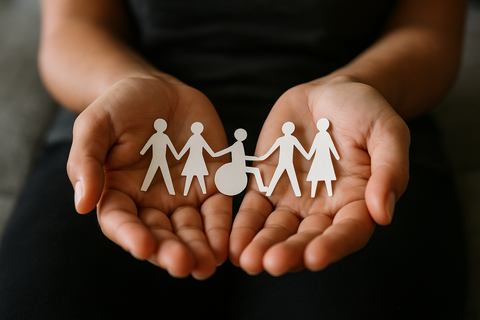The ageing population in Australia is growing rapidly, More than half of older people were aged 65–74 (56%, 2.4 million people). As the demand for aged care services intensifies, providers and policymakers face a pressing question: how can we shift from a reactive model of care - responding to crises after they occur - to a proactive system that prevents health declines in the first place?
In addition to subtle changes in daily patterns, emerging evidence suggests that more serious health events often precede subtle changes in daily patterns. These signals often go unnoticed in traditional, episodic models of care. Wearable technology offers a solution to this problem by monitoring health continuously.
The Challenge of Reactive Care
The current approach to aged care, despite being increasingly person-centered, still relies heavily on scheduled check-ups, periodic observations, and self-reporting.
-
Falls: Around one in four older Australians experience a fall each year, and many of these events are only addressed after hospitalisation.
-
Chronic conditions: Symptoms of cardiovascular disease, diabetes, or sleep disorders often remain undetected until they escalate.
-
Psychological impacts: Seniors frequently lose confidence in their independence following preventable incidents, reducing quality of life.
The result is a system that often intervenes too late, resulting in higher healthcare costs.
How Wearables Enable Early Detection
The wearable offers continuous, real-time insights that complement traditional care. On an ongoing basis, devices like health rings can capture key metrics such as heart rate, heart rate variability, sleep quality, activity levels, blood oxygen, and temperature.
For aged care providers, this enables:
-
Identification of emerging risks before they escalate.
-
More personalised care planning, based on real behavioural data.
-
Reduced reliance on sporadic monitoring, allowing for ongoing vigilance without intrusive interventions.
Yeyro Ring and App: A Human-First Approach
As part of this shift towards preventative aged care, the Yeyro Ring tracks sleep stages, heart rate variability, and oxygen saturation through light, durable, and comfortable design. With an extended battery life and water resistance, it is ideal for continuous use in aged care settings.

While the Yeyro Ring is a powerful tool for continuous health tracking, the real innovation lies in the Yeyro App’s inclusivity. Unlike most wearable ecosystems, the Yeyro App is not locked to a single device. It integrates seamlessly with all leading smart watches and smart rings, meaning users do not need to purchase a Yeyro Ring in order to access the app’s capabilities.
This design decision represents Yeyro’s most impactful proposition: lowering barriers to preventative care. By supporting multiple devices, the app ensures that seniors, families, and carers can benefit from empathetic insights without costly hardware transitions. For organisations, this universality avoids excluding individuals already using popular wearables, while still offering the option of the Yeyro Ring for those seeking a purpose-built solution.
At its core, the Yeyro App is a human-first health hub. It consolidates data into three clear scores - Sleep, Activity, and Readiness - paired with actionable suggestions, weekly AI-generated health summaries, and optional family sharing for transparency. Whether data originates from the Yeyro Ring, an Apple Watch, or another smart device, the app translates it into meaningful guidance designed to foster proactive care, dignity, and independence.

Seamless Health Overview
Upon launching the app, users encounter a centralized dashboard offering an "at-a-glance" view of wellbeing. This app provides a comprehensive overview of health, as well as more detailed breakdowns of fitness, sleep, and general wellness. It simplifies complexity and enhances clarity by synthesizing complex data into a unified interface.
Intelligent, Person-Centred Insights
AI-driven health summaries provide personalised insights into progress, balance, and areas of concern. Data interpretation is tailored to user behavior and trends rather than just presenting raw data.
Daily Dashboard with Mood, Stress, and HRV Context
Wellness Rewind is a section of the app that combines mood, stress indicators, and heart rate variability (HRV) into one overview. Individuals-and their carers or support networks-can gain a deeper understanding of how emotional and physiological interactions interact, strengthening their mental and physical well-being.
Conclusion
In aged care, prevention is just as important as treatment. With tools like the Yeyro Ring and App, providers and families can detect changes before they escalate, reduce unnecessary hospitalizations, and help seniors live longer, healthier, and more independently by using continuous insights.
By shifting towards a proactive care model, wearable technology offers more than just practical benefits.

